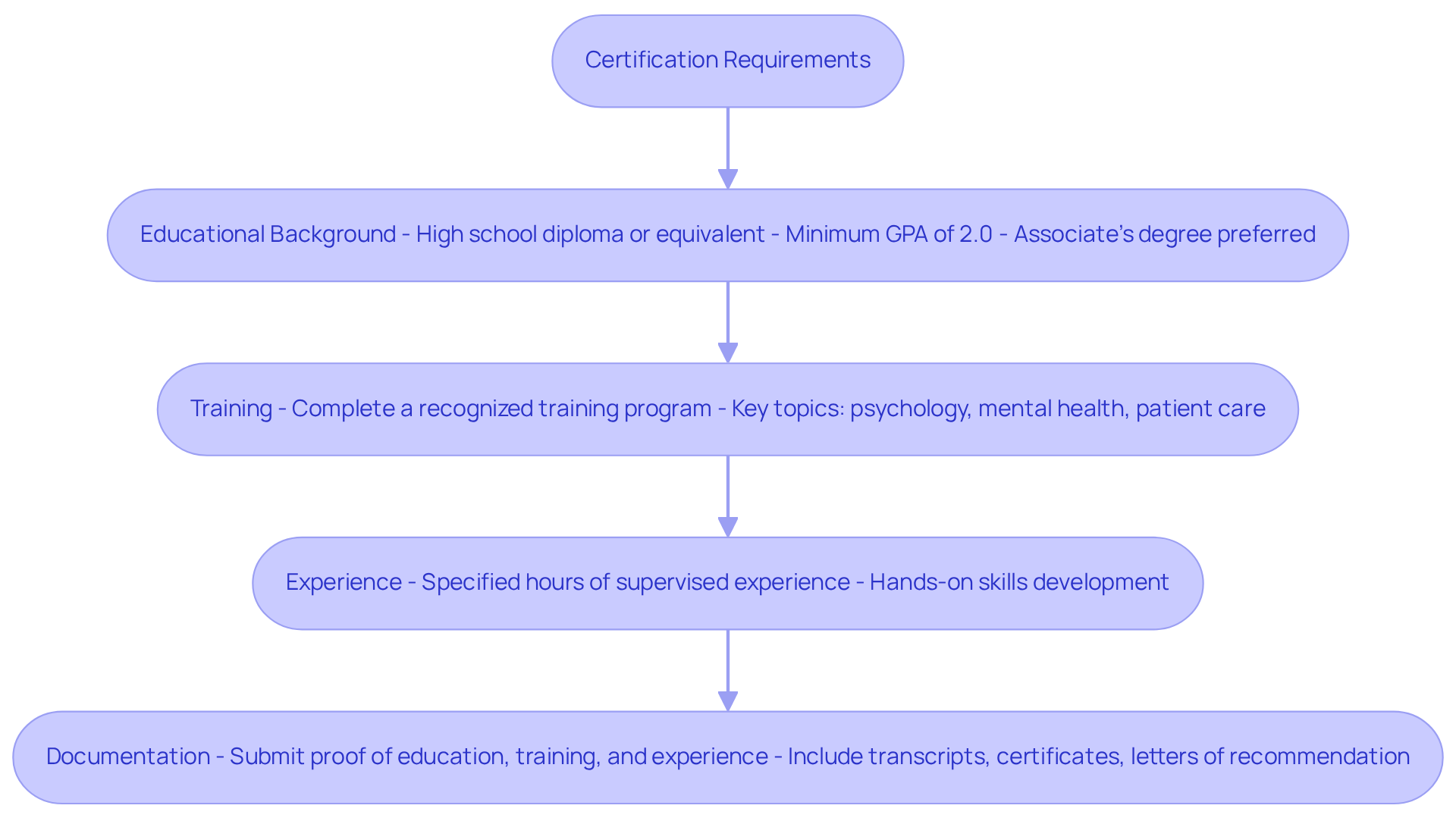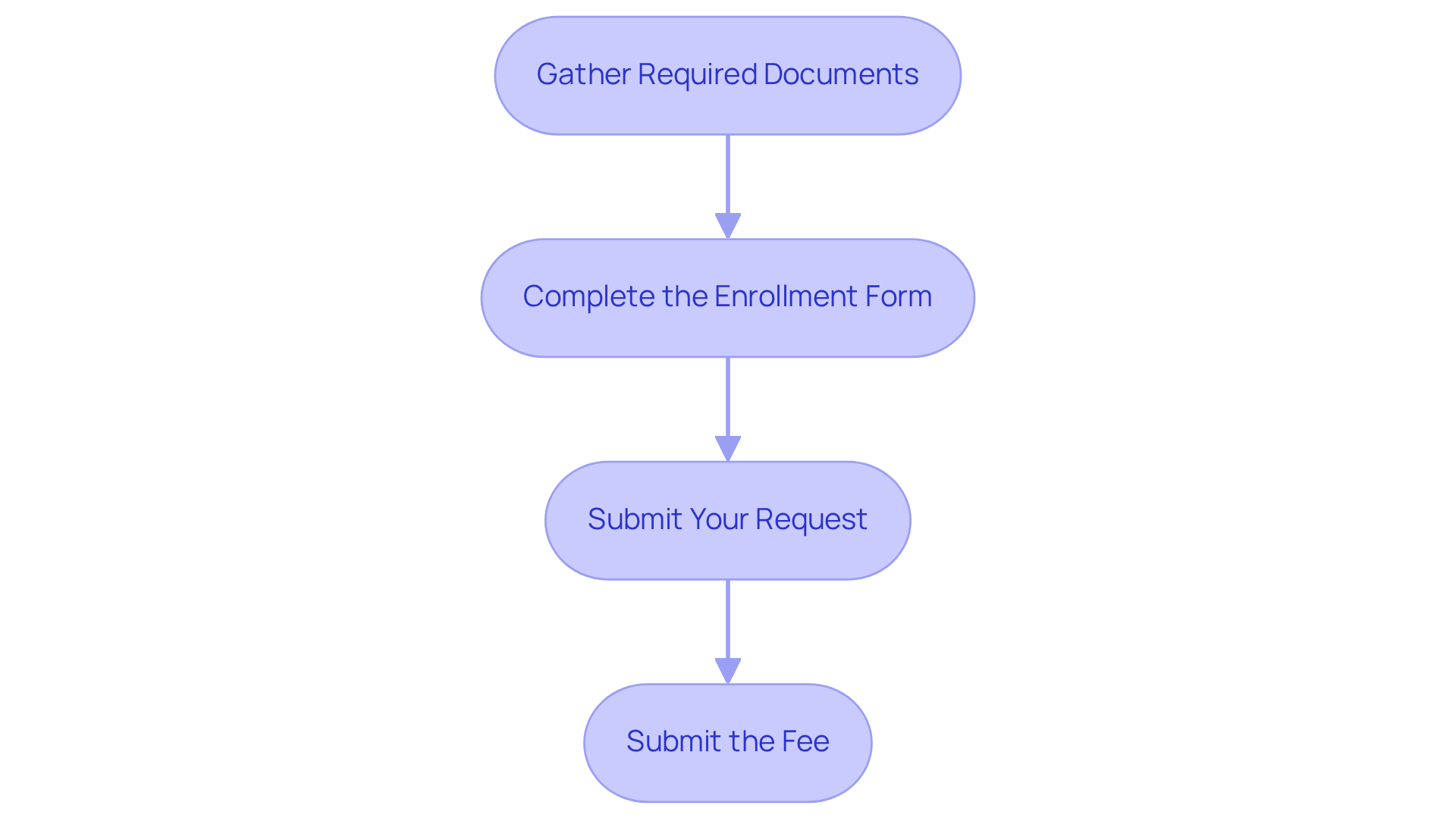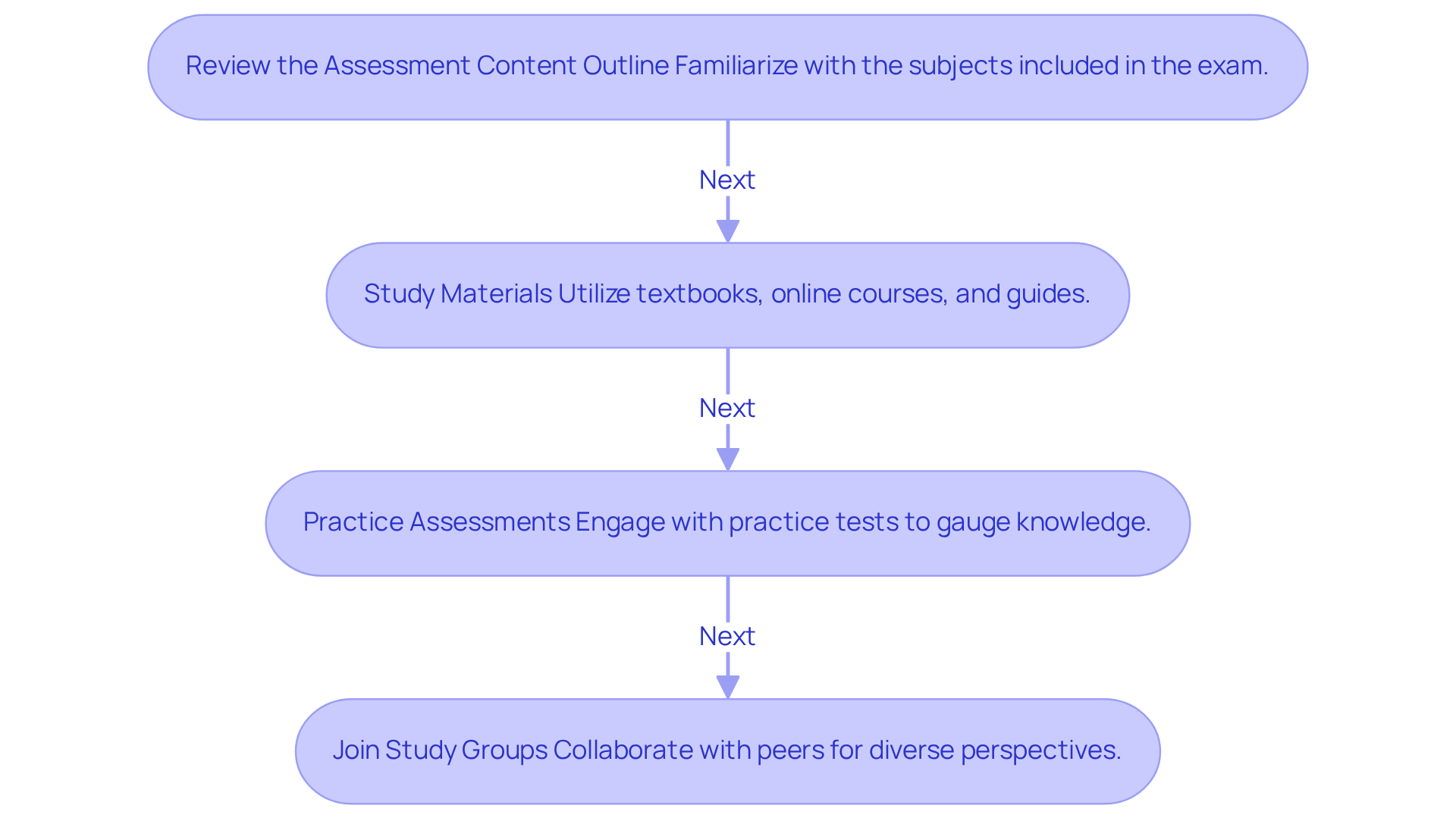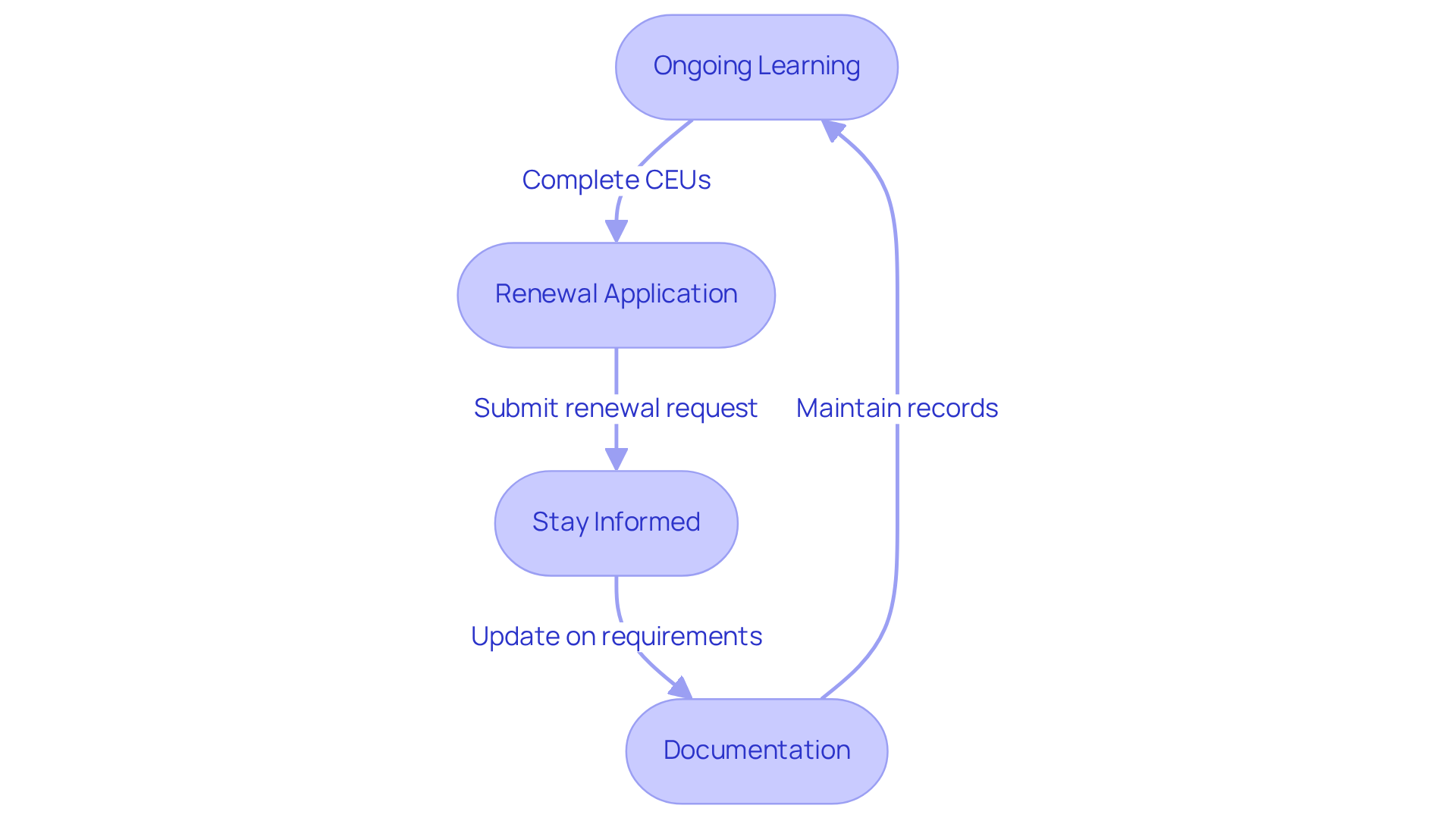June 26, 2025

The article outlines the essential steps to obtain a free behavioral health technician certification, underscoring the critical importance of fulfilling educational, training, and experience requirements.
It details the application process, exam preparation strategies, and the ongoing maintenance of certification.
Adhering to these steps is not merely a procedural formality; it significantly enhances career opportunities in the burgeoning field of behavioral health.
In the dynamic landscape of behavioral health, the demand for certified professionals is surging. Projections indicate a remarkable 25% increase in the need for Board Certified Behavior Analysts (BCBAs) by 2026. For aspiring behavioral health technicians, obtaining a free certification not only enhances career prospects but also equips them with essential skills to navigate this complex field. Yet, the journey to certification can often feel daunting.
What crucial steps must one take to secure this valuable credential and stand out in a competitive job market? This article will guide you through the process, ensuring you are well-prepared to meet the growing demand.
In the rapidly evolving field of behavioral health, acquiring is not just beneficial; it is essential. With the demand for Board Certified Behavior Analysts (BCBAs) projected to increase by 25% by 2026, understanding the specific requirements set by the certifying authority is crucial for aspiring professionals. Candidates typically need to fulfill the following criteria:
By ensuring you meet these requirements, you can effectively streamline your path to and focus on advancing your career in the behavioral health sector. Moreover, acquiring credentials significantly improves employment opportunities and frequently results in increased salaries; starting salaries for generally range from $28,000 to $34,000 annually. As the need for qualified professionals in the behavioral health field continues to grow, are you ready to take the next step in your career? Consider leveraging platforms like Hire ABA to facilitate your recruitment process and position yourself as a leader in this vital industry.

Completing the application process for free behavioral health technician certification is a critical step in advancing your career. The ever-increasing demand for qualified professionals in this field makes obtaining a free behavioral health technician certification essential for standing out. Here are the key steps to ensure your application is successful:
In the words of Ralph Moller, "To maintain RBT credentials, continuing education units (CEUs) play a crucial role in the renewal process." This statement underscores the significance of being ready not only for the submission but for continuous professional growth as well.
By carefully adhering to these steps, you can improve your chances of a successful application for your free behavioral health technician certification. Candidates who have successfully navigated this process often emphasize the importance of thorough documentation and timely submissions. Are you ready to take the next step in your professional journey? Embrace the opportunity to enhance your qualifications and stand out in the competitive landscape of behavioral health.

Preparation for the certification exam involves several essential steps:
By implementing these preparation strategies, you can approach the examination with confidence and a thorough grasp of the material.

To maintain your Behavioral Health Technician certification, follow these essential steps:
By committing to these maintenance activities, you not only ensure your ability to deliver high-quality care but also keep your free behavioral health technician certification valid. As Nelson Mandela stated, "Education is the most powerful weapon which you can use to change the world," highlighting the transformative impact of continuous learning on your professional journey.

Acquiring a free behavioral health technician certification is a vital step for those looking to advance their careers in the growing field of behavioral health. Understanding the requirements, completing the application process, preparing for the certification exam, and maintaining the certification are all essential components that pave the way for professional success. By following the outlined steps, candidates can enhance their qualifications and stand out in a competitive job market.
Key insights from the article highlight the importance of:
Each step, from gathering necessary documents to actively engaging in ongoing education, plays a critical role in achieving and maintaining certification. As the demand for skilled professionals in behavioral health rises, being well-prepared not only improves employment prospects but also contributes to better client outcomes.
Ultimately, the journey to becoming a certified behavioral health technician is more than just a credential; it is a commitment to professional growth and excellence in patient care. Embracing this opportunity to enhance skills and knowledge will not only benefit individual careers but also positively impact the broader field of behavioral health. Taking action today can lead to a fulfilling and impactful career in this essential industry.
Why is obtaining a behavioral health technician certification important?
Acquiring a behavioral health technician certification is essential due to the increasing demand for Board Certified Behavior Analysts (BCBAs), which is projected to rise by 25% by 2026.
What are the educational requirements for certification?
Candidates typically need a high school diploma or equivalent with a minimum GPA of 2.0. However, many programs prefer candidates with an associate's degree in a related field.
What training is required for certification?
Candidates must successfully complete a recognized training program that covers key topics in behavioral health, including psychology, mental health, and patient care.
Is prior experience necessary for certification?
Yes, most certification paths require candidates to have a specified number of hours of supervised experience in a clinical setting to develop practical skills.
What documentation do candidates need to provide?
Candidates must submit proof of their education, training, and experience, which may include transcripts, certificates, and letters of recommendation.
How does obtaining certification affect employment opportunities and salary?
Acquiring credentials significantly improves employment opportunities and often leads to higher salaries, with starting salaries for mental health technicians typically ranging from $28,000 to $34,000 annually.
How can candidates streamline their path to certification?
By ensuring they meet the certification requirements, candidates can effectively streamline their path to certification and focus on advancing their careers in the behavioral health sector.
Our expert recruitment strategies and AI-driven sourcing ensure that you receive top-notch candidates quickly, without compromising on quality. Whether you’re looking for BCBAs, Clinical Directors, or RBTs, we’ve got you covered.